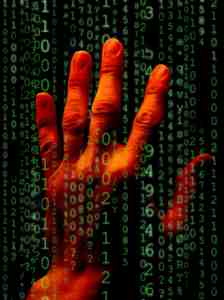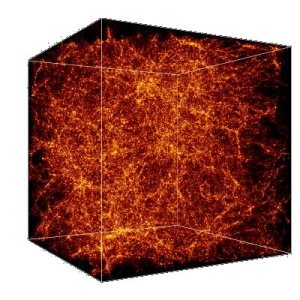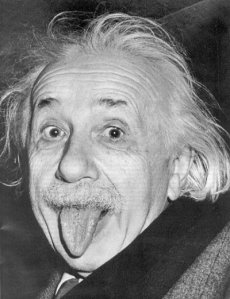Science and Truth
Science has a strange fascination. Everybody would like to lay claim to it. Those who follow the scientific method, the scientists, are of course the practitioners. But even those whose work has less connection to science do. Some of the most insidious of these are the medical hacks, the creationists (a.k.a. intelligent design proponents), the “Christian Science” folks. But there are other relatively harmless co-opters, such as some science fiction authors and filmmakers.
There’s a general feeling that science automatically implies truth, and everybody wants to claim their version is the truth. However, I think science only implies truth under some assumptions extraneous to the scientific method. So I’m going to provide an example of a situation under which science fails to provide the truth.
A Model
 The best way to explain what I mean is to assume a model for the universe that is consistent with everything we observe. This model is as follows: suppose that the entire observable universe is really a simulation on a computer. Everything has been programmed by somebody. We are not directly aware that we are simulations because, of course, we are part of the simulation. The programmer may have coded some “natural laws” into his simulation and then let it run. The programmer may or may not intervene; if he does, we call it a “miracle”. In this case, the truth is that there is a god — the programmer.
The best way to explain what I mean is to assume a model for the universe that is consistent with everything we observe. This model is as follows: suppose that the entire observable universe is really a simulation on a computer. Everything has been programmed by somebody. We are not directly aware that we are simulations because, of course, we are part of the simulation. The programmer may have coded some “natural laws” into his simulation and then let it run. The programmer may or may not intervene; if he does, we call it a “miracle”. In this case, the truth is that there is a god — the programmer.
Science
Science is a method, or maybe a collection of methods, for understanding things we observe (inside the simulation). The method is supposed to yield an explanation (theory/hypothesis/law of nature)for observed phenomena. The primary tenets of the scientific method are that
1. the phenomenon must be verifiable. That is, it must be observable by multiple independent observers. It isn’t enough if one person claims the phenomenon occurred.
2. the explanation must be testable or falsifiable. That is, it should be possible to make predictions which, if false, disqualify the explanation — and which can be tested experimentally. If I claim that God is the explanation, this isn’t falsifiable. There is no clear prediction anyone can make which, if false, conclusively proves that God doesn’t exist. This is closely related to the explanation being “in-universe” i.e. a “God” explanation doesn’t satisfy these requirements.
 3. the results of experiments to test these predictions must be verifiable and reproducible. That is, multiple independent observers must be able to reproduce the results.
3. the results of experiments to test these predictions must be verifiable and reproducible. That is, multiple independent observers must be able to reproduce the results.
4. the explanation should be simple. That is, a complex explanation would be rejected in favour of a simple one, until the simple one fails. This pertains to what we mean by an “explanation” or law. If we didn’t include this requirement, every phenomenon would suffice as its own explanation — not a very useful state of affairs.
Science is inherently a negative discipline. You can never prove any law using the scientific method.
Even if an explanation (i.e. a natural law) is true, it is never possible to prove scientifically that the explanation is true. All you can do is collect evidence for it. Every experiment which fails to disprove the explanation is evidence for it.
On the other hand, if the explanation is not true, even one negative experiment is sufficient to disprove it.
Science and Truth
 Can science unravel the existence of the programmer?
Can science unravel the existence of the programmer?
The answer is yes — only if the programmer designed the universe that way.
On the other hand, if the programmer coded the simulation so as not to reveal his existence to us, there’s nothing we can do to discover him.
In the second situation, the truth is there’s a programmer. But there’s no scientific way to discover that. In this situation, science cannot decipher the truth. In fact, there is no way to show that science leads to the truth.
In other words, science can be agnostic to the truth.
But in fact, it gets worse. It is quite possible that the programmer coded the simulation to be deliberately deceptive. Let’s say that whenever anyone applies the scientific method to some particular question, there’s a subroutine that determines this and feeds the scientist false results designed to make him think something that is not true.
In this case, the scientific method would always yield the wrong answer to that question.
“The Fundamental Axiom of Science”
 The scientific method is the only logically sound method available to us. It is the best we can do. However, our best may not be good enough. Our best method may not be enough to decipher the truth.
The scientific method is the only logically sound method available to us. It is the best we can do. However, our best may not be good enough. Our best method may not be enough to decipher the truth.
This is a sort of fundamental axiom of science: that the scientific method never leads to untruth. More specifically the axiom is:
If the scientific method shows that some explanation is false, then the explanation is indeed false.
This is an assumption. We can’t test it, because the programmer may not have designed the universe so that it is testable. If the assumption holds, the scientific method is valid. But not otherwise.
Conclusion
This is why I think that, while science will never accept god, science is actually primarily unconcerned with god. There need not be a contradiction between religion and science — until religious types start claiming they are scientific.
Nice, thought-provoking post.
The programmer metaphor is precisely the one I think about when speculating about a Creator. To start, its a great answer to the question of, Where is God, then ?
If you imagine creatures in a computer simulation trying to figure out where the programmer is, there’s absolutely no way they can answer the question, because even their very concept of space would only exist as part of the simulation. The ‘real world’ is totally inaccessible to them, unless some sort of ‘information feed’ is programmed.
Sometimes, I like to extend the metaphor and think of the programmer as some kind of intelligent computer creating and running the program within itself.
You see, in that case, the computer would be the very substrate on which the simulation is running, but still beyond the reach of the virtual creatures.
God could be omnipresent and yet totally inaccessible !!
You’re exactly right. The distinction between the programmer and his computer is artificial. The simulation might simply be a subroutine, and another subroutine could be the “programmer”.
Awesome! 😀
Your line of thought led me to some other interesting questions. If this is the model, that is we accept that programmer and simulation are just subroutines on a substrate computer, what is Brahman? The sum of programmer and simulation, I think — in fact, all of the running software on the meta-level computer. In this case, we’d have to reject a strict Samkhya-style duality of mind and matter and accept an Advaita view — that everything is Brahman. There is no reality other than Brahman; no Samkhya-style separate matter if you look at reality. Matter is just a perception of creatures in the simulation. This computer simulation model might be a good way to understand some Hindu philosophy.
Another blogpost idea: Nick Bostrom and the Samkhya-Advaita Debate. 😀
A quote from Adi Shankara, taken from Wikipedia:
Excellent quote! Intellectually, easy to grasp (for us); but to understand it from one’s personal experience, now that would be the ultimate insight. 🙂
Exactly! I think I might have been wrong about Samkhya above; but nevertheless it would be very interesting to see how some of the things our ancients thought about line up with our current benefit-of-hindsight ideas.
Rajeev, I think you’re the only other person I’ve met who knows who Nick Bostrom is !
Regarding the philosophies, Sankhya is just so Descartes, if you get what I mean.
Although, given the chronological order, I might be putting Descartes before the horse. (Heee, heee, I kill meself laughing !).
I don’t really like dualistic philosophies, and the whole idea of mind as a separate thing from matter seems artificial and is already being challenged by our ‘in universe’ scientific method.
All for Advaita Vedanta and ‘everything is Brahman’.
I like our computer and simulation analogy much better than Shankara’s snake-rope stuff. (We’ll soon be the Nava-Shankaras 🙂 ).
I’d think of Brahman as the entire computer and all its simulations.
The good thing about the analogy is that it gives a very clear picture of what Maya could be – not a personal hallucination like Shankara’s snake-and-rope – but a consequence of the fact that a simulated universe could be very different from the
ultimate reality which may well be completely unknowable.